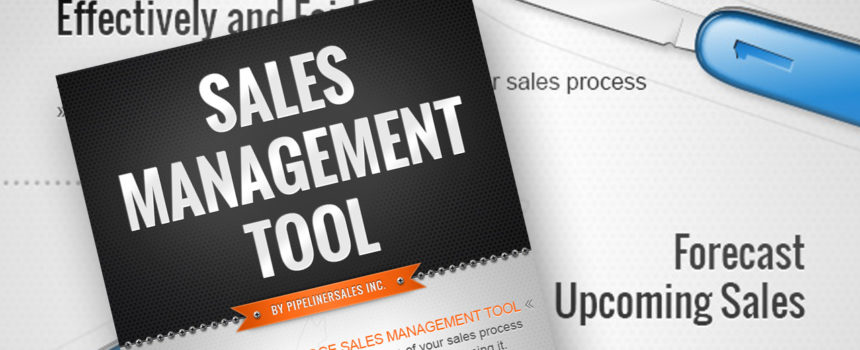To take full advantage of your sales process, you need a management tool that will enable you to:
- Track the performance of your sales process
- Manage the sales staff that are responsible for using it
Here are five reasons why:
#1: Manage Your Sales Force Effectively and Fairly
If you don’t have a sales management tool, it becomes very difficult to effectively manage your staff. That’s because the analytical and performance data provided by such tools, enables you to properly assess individual, team and overall sales process performance – instead of relying on guesswork.
Data can be seen in black and white and in turn, this allows for fairer management. That’s because all reps can be assessed on a level playing field against the same performance criteria.
#2: So You Can Forecast Upcoming Sales
Once you have a handle on the key metrics within your sales pipeline (such as win rate, pipeline velocity and the number of leads), you’ll be able to forecast, with a good degree of accuracy. In turn, you’ll be empowered to make an accurate assessment as to whether sales target will be achieved.
And there are further benefits for doing this:
- Accurate forecasting is invaluable for managing staffing levels. For example, if the pipeline indicates there will be an upcoming boom, this allows time to bolster the sales team (if necessary) so the influx of leads can be properly managed
- If the figures indicate there’s a risk you’ll fall short of target, you’ll be able to take preventative action in advance – and even reverse the trend
#3: To Promote Sales and Marketing Alignment
This information age now means customers are often 60% of their way through the sales process when they first speak with a sales representative. Therefore, more than ever, there needs to be sales and marketing alignment to streamline the sales process as a whole.
The right sales management tool will give marketing the insights they need to see the quality of the leads they’re generating (because if leads are poor, sales reps will struggle to close). This information is invaluable because it provides the information needed to tweak marketing messages to attract prospects that better fit the required buyer persona.
In addition, marketing teams will be able to assess the effectiveness of the sales tactics deployed further along the sales pipeline. In this way, they can help to create new tools and information to boost sales process velocity, and make it easier for prospects to come to a decision.
#4: Close More Deals
A good sales management tool will enable interested parties to see, at a glance (and in real time), exactly what’s happening within your sales process.
For example:
- The number of qualified leads
- The number of prospects awaiting a quote
- The number of people who’ve requested a demonstration
- The number of potential customers who need following up etc.
In addition, your sales management analytics will enable you to track leads that have been won. What’s more, you’ll also be able to drill down and look at these sales process metrics for individuals, as well as teams and the business as a whole.
The value of this amount of information is it removes guesswork and assumptions from the pipeline. Instead, simply print out reports (or look at the real time data), and you can instantly see the state of play.
In addition, information about what’s happening within the pipeline will enable sales managers to make informed decisions. For example, if leaks are discovered within the sales process, they can be tackled. In addition, consistent issues may be identified. Perhaps there’s an unnecessary lag in quotes being delivered or demonstrations being booked. If these can be identified and resolved, the efficiency and effectiveness of your sales pipeline instantly improves.
#5: Make Data Easily Accessible Throughout the Sales Process
Finally, a central sales management tool will ensure that all information is contained in one place. As a result it’s easily accessible and easy to manage.
What’s more, good sales management tools will help sales reps will get more done in less time and manage their workload on a day-to-day basis. For example, sales reps can be reminded of who needs following up and what activity they must do that particular day. Further, some tools allow individual reps to annotate contacts and engage with their own data to manage leads more efficiently and effectively. In turn, they are more successful.
Are you happy with your sales management tool?
Does your existing sales management tool allow you to do all the above? Are you happy with the analytical capability that your existing solution offers? If not, why not give Pipeliner CRM a trial in your business? You can test drive it for FREE for 30 days, and there’s no obligation. To get started, simply click here.










